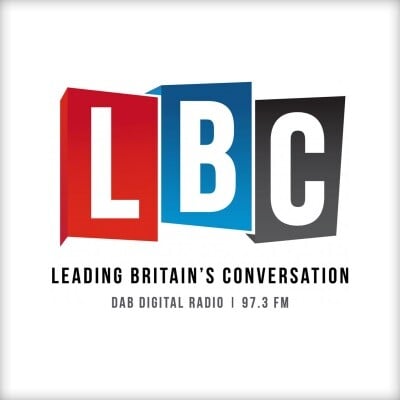LBC Radio: January, the Gloomiest Month of the Year?
January 22, 2019 - Smart TMS

Smart TMS’s Dr Leigh Neal, Consultant Psychiatrist appeared on LBC radio feature about the January blues.
The presenter commented that after the fun and festivities of Christmas…
“…no wonder that January can sometimes feel like the gloomiest month of the year”
LBC questioned first of all whether the condition is real. Dr Leigh Neal explained:
“It’s a true condition, psychiatrists call it Seasonal Affective Disorder or SAD. It’s a condition which tends to occur just in the winter months. If a person has a depressive episode occurring just exclusively during the winter months, psychiatrists might well diagnose SAD.
“It’s a condition commonly associated with some specific symptoms actually. There’s an increased need to sleep, you might need to sleep for 8 or 9 hours a night. There’s an increased appetite with a craving just for carbohydrates – people tend to gain weight and they might suffer from severe fatigue during the day.
“SAD is quite a common condition affecting about 1 in 20 people and it tends to be more common in women than men and more common in younger people.”
The host asked whether the slump after Christmas parties was a factor or just the weather and lack of sunshine. Leigh replied:
“It’s more associated with less light. There’s some evidence that it’s more common in Northern latitudes…
“One of the main treatments for it is actually exposure to bright light. You can buy a lightbox from quite a lot of well-known retailers and treatment with that for about an hour and a half a day will often reduce the symptoms within about 2 weeks.”
LBC asked whether patients should try to solve the gloom or just wait for spring.
Dr Leigh Neal responded:
“If you’ve got a proper depressive episode it can impair you quite badly. It might affect your ability to work so I think it’s something you’ve got to take seriously. I think it’s probably a good idea to see your doctor and a GP might prescribe you light therapy or antidepressants or psychotherapy – all those have been shown to be effective.
“At Smart TMS we tend to treat more resistant cases of depression. We use a form of transcranial magnetic stimulation, which stimulates specific parts of the brain which are concerned with depression.”
The presenter asked how long TMS treatment takes to work. Neal explained:
“You attend for 30 minute sessions, normally about 5 sessions per week and somewhere between 20 and 30 sessions in total. Round about 60% of people make a complete recovery and about 75% of people will have a significant reduction in symptoms, so it’s quite effective. It was approved by NICE in 2015, where they stated that it was a safe and effective treatment for depression.”
Dr Leigh Neal reiterated that there is hope:
“Depression is quite a debilitating illness but it’s certainly a condition which can be treated effectively if people consult their doctor and get the right sort of treatment for it.”
Dr Leigh Neal
 Dr Leigh Neal is Co-Founder and Medical Director of Smart TMS.
Dr Leigh Neal is Co-Founder and Medical Director of Smart TMS.
He has worked as a Consultant Psychiatrist since 1994 and is highly experienced in the treatment of mental health conditions including chronic depression, addiction and PTSD.
He is an expert in neuromodulation and a member of the International Neuromodulation Society.
SMART TMS CLINICS
Smart TMS was established in 2015, dedicated to providing TMS treatment in London at their South Kensington/Brompton Cross centre. The company opened a second clinic in Birmingham in September 2017 and also has a base in Northampton. The first Irish clinic was opened in Dublin in October 2017 and in 2018, Smart TMS opened further locations in Manchester, Bristol and Havant (South Coast).
CONTACT US
For any other queries or for patients wishing to book an appointment at one of our UK clinics, please contact us:
- Tel: 0345 222 5678
- Email: info@smarttms.co.uk
Irish patients may contact Our Dublin Clinic direct on:
- Email: info@smarttms.ie
- Tel: 353 (01) 254 2514
- Website: www.smarttms.ie










